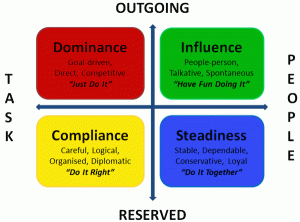
I Am Jesus – I Am The Vine
Sycamore Creek Church
October 12/13, 2014
Tom Arthur
Peace friends!
Have you ever been on a swing when the rope or chain became disconnected from the frame? I was swinging on a porch swing one time when one chain broke as I was swinging toward the edge of the porch. I went backwards over the back of the swing, somehow rotated in the air and tucked into the fetal position. My body went between the porch post and a tree stump. I came down on my head but rolled out of the fetal position so that I was laying flat on my back on the driveway. I jumped up as if to say, “Look I’m OK.” In the split second that this whole thing happened, I learned the dangers of becoming disconnected.
Today we’re talking about being connected and disconnected. We’re in a series called I Am Jesus. In the book about Jesus written by one of his closest followers, John, Jesus makes seven different “I am” statements. He says:
I am the way the truth and the life.
I am the bread of life.
I am the gate/door.
I am the good shepherd.
I am the vine.
I am the resurrection.
I am the light of the world.
Last week we looked at his statement, “I am the good shepherd.” Today we look at what it means when Jesus says, “I am the vine.”
In the book of John, we find the following statement in chapter fifteen:
Yes, I am the vine; you are the branches. Those who remain in me, and I in them, will produce much fruit. For apart from me you can do nothing.
~Jesus (John 15:5 NLT)
It is important to understand the context of this statement. In chapter thirteen Jesus begins the last supper he will have with his disciples before his crucifixion. In chapter eighteen Jesus is arrested. Chapters fourteen to seventeen record Jesus’ dinner conversation.
This is the last conversation Jesus is going to have with his friends. If you were having a last conversation with family and friends, what would you say? Jesus decides to talk about grapes. He begins this chapter saying, “I am the true grapevine” (John 15:1 NLT)
If Jesus is the true vine, then that implies that there are some false vines. Too often we connect ourselves to all kinds of false vines hoping it will bear fruit in our lives. If I make more money next year and climb one rung on the ladder, I’ll have fruit. If I get a certain number of friends on Facebook, then I’ll have fruit. If I have an appearance of a perfect home (2.5 kids, wife, dog, perfect lawn, etc.), then I will finally have fruit. But it doesn’t quite work that way. We have to stay connected to the true vine. There are at least two reasons why.
1. Staying Connected Produces Fruit
When we stay connected to the true vine, our lives produce fruit. These fruit are described by Paul, the first missionary of the church, in his letter to the Galatians. He says:
But the Holy Spirit produces this kind of fruit in our lives: love, joy, peace, patience, kindness, goodness, faithfulness, 23 gentleness, and self-control.
~Galatians 5:22-23 NLT
This isn’t the fruit of more money, or a better looking husband. It’s an internal fruit. The fruit of virtue in your life. This kind of fruit requires staying connected. It rarely happens overnight. It’s like learning to ride a bike. To learn to ride the bike you have to stay connected to the bike. You can’t expect to learn to ride a bike if you don’t get on it. And it takes time staying connected to the bike along with some bumps and bruises to learn the fruit of balancing on the bike. I came across this boy whose perseverance in staying connected to his bike has finally born fruit. His encouragement to keep practicing can encourage us to stay connected to the true vine.
Recently I’ve been struggling with a particular question: I am staying connected to the true vine, but I’m not seeing the fruit in my life. One particular challenge lately has been with being a parent. Too often being a parent brings out all the bad stuff in me. Why is that? As I’ve pondered why I’m not seeing fruit in my parenting, I realized that while I’m thirty-nine years old, and in general I have thirty-nine years of remaining connected to the true vine, when it comes to parenting, I’m only three years old. In other words, in most of my life, I’ve got the maturity and fruit of a thirty-nine-year-old. But in parenting, I’ve only got the maturity of a three-year-old! But if I stay connected to the true vine, the fruit will come.
If you’re staying connected to the true vine by praying for a friend to come to Christ but it’s not happening, stay connected. If your anger is still explosive. Stay connected. If your lust continues. Stay connected. If your impulsive spending persists. Stay connected. Here is your “Fruit forecast:” 100% probability of fruit. But we have to remain. We have to stay connected. Continue. Continue. Continue.
There are some apple trees on the side of the office. Sarah and I swung by them this past week to see if there were any apples. But they only bloom every other year. Stay connected. There’s a Ceiba (“SAY-ba”) tree on MSU’s campus that blooms “as little as once every 5 years.” Or there’s the Corpse Flower that gets its name by smelling like rotting flesh. It bloomed this past year but “the plants rarely bloom, going years, even decades between showings.”
Stay connected. Stay connected. Stay connected.
2. Being Disconnected Produces Nothing
A second reason we need to stay connected to the true vine is because being disconnected produces nothing. Jesus says:
Anyone who does not remain in me is thrown away like a useless branch and withers. Such branches are gathered into a pile to be burned.
~Jesus (John 15:6 NLT)
Sometimes being disconnected is deceptive. Sometimes it looks like fruit is still being produced. After one of the big storms we had this past spring, I went on a walk in my neighborhood and came across a tree that had lost several branches. The branches were lying on the ground, and I was surprised to find that the branches had blossoms on them. But this was only because there was a limited amount of life left in the disconnected branch. The next week I walked by this same tree and those branches has been picked up and carted away.
Have you ever plugged your cell phone in before you went to bed only to wake up the next morning and realize that the cord was not plugged into the wall? Yes, there is some battery left, but not enough to get you through the day.
It’s important to guard against becoming judgmental at this point. If we become judgmental we can easily end up right in the middle of the very thing we’re judging. I say to myself, “I’ll never have an affair” but then I do. Or I say, “My kids are never going to act like that” and then they do. Or “I’m never going to put my job before my family,” but you do. Anybody is capable of anything when you’re disconnected from the vine.
So if it’s important to stay connected to the true vine because it produces fruit and because being disconnected produces nothing, how do we stay connected? Here are two ways.
1. Do What Jesus Says
To learn what Jesus says, it seems like a good place to start is with what Jesus actually says. So Jesus says:
When you obey my commandments, you remain in my love, just as I obey my Father’s commandments and remain in his love.
~Jesus (John 15:10 NLT)
One of my first jobs when I got married was at a fancy Italian restaurant in Petoskey. The owner, Alex, described himself as not always fun but fair. He had a very accurate self understanding. One day he took about ten minutes to show me how he wanted the cheese for the pizzas to be made. There was a specific ratio of Mozzarella to Muenster that he wanted. He had a particular way he wanted it run through the grinder. And then there were more instructions for how to handle it once it was all properly mixed. After Alex took the time to show me this, I did it his way for about five minutes. Then I decided I knew better and began doing it my way. A couple of minutes later he came by and saw that I was not doing it the way he had taken time to show me, and I got a stern lecture about it all. I was hurt in the moment (no one likes to be corrected), but after thinking about it for a while I realized that even if my way was better, he’s the one who owns the restaurant and he’s the one who’s paying me, and he’s the boss, so I should do it the way he wants. It was really quite simple. He was hiring me to do things the way he wanted them done. And that’s how I should do it.
Let’s admit it. Christians can be a bunch of loop-hole fanatics. We find every possible reason not to actually do what Jesus says. Francis Chan has this provocative insight on not doing what Jesus says:
Go clean your room! As Chan says, “We have too many believers and not enough disciples.”
So where do you need to quit talking and praying about it and to finally do it? Someone tells you to lead a small group. Clean your room! You need to spend more time with your kids. Clean your room! Be more selfless and get outside yourself. Clean your room! Serve in the church. Clean your room! Serve in the community. Clean your room! Set time aside to pray. Clean your room! Read your Bible. Clean your room!
Make extra payments on your debt. Clean your room! Stay connected to the true vine by doing what Jesus says.
2. Love Like Jesus Loves
The second way to stay connected to the true vine is to love like Jesus loves. Jesus says:
This is my commandment: Love each other in the same way I have loved you.
~Jesus (John 15:12 NLT)
Loving each other can be a kind of subjective call. You might think its one thing while someone else thinks it’s something else. But Jesus makes sure we can’t wiggle out of this. He puts some definition on this love. “Love as I have loved you,” he says. He steps it up a notch. Just before this dinner conversation and last supper together, Jesus shows them what this love looks like by serving them. He washes their feet, the job of a slave or servant. He explains what this love looks like in himself: “There is no greater love than to lay down one’s life for one’s friends” (John 15:13 NLT). Jesus raises the standard way high!
A year or so ago I was reading a book called Sacred Parenting. It was about how parenting itself is a spiritual discipline. It is a great book, and I highly recommend it to others. I was sitting quietly in the morning reading the chapter about sacrifice. The sacrifices a parent makes for their child can be a way that we enter into God’s presence and know something of the sacrifices that God makes for his children. As I was enjoying reading this chapter and thinking about how sacrifices for my children could draw me closer to God, Micah woke up about thirty minutes early and began crying. I remember thinking, “Sarah will get him.” Then the iron struck. I would rather read about sacrifices in parenting than actually sacrifice in parenting! Henri Nouwen says, “It seems easier to be God than to love God, easier to control people than to love people.”
This loving like Jesus loved is hard stuff. It’s really hard stuff. That’s why we’ve got to stay connected. We can’t do it alone, and it pushes us back to the vine.
Are you staying connected? Have you become disconnected? What fruit is your life producing? What fruit is it missing? If you desire to stay connected to the true vine, Jesus Christ, then join me in this prayer:
Jesus, you are the true vine. I want my life to produce fruit, but I confess that too often I try to do that while being disconnected from you. Help me to do what you say and love like you love so that I might stay connected to you and produce your fruit in my life. In the power of your Spirit. Amen.





Recent Comments